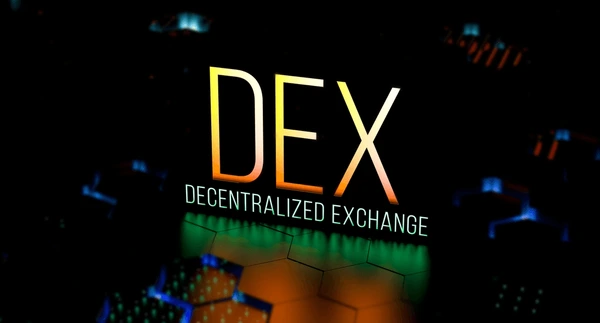
Decentralized Finance (DeFi) represents a significant shift in how financial services are delivered, leveraging blockchain technology to create an open, permissionless financial ecosystem. At the heart of this movement are Decentralized Exchanges (DEXs) development, which play a crucial role in facilitating trading and liquidity without the need for traditional intermediaries. This blog explores the relationship between DeFi and DEXs, detailing how these platforms contribute to the broader DeFi ecosystem.
Understanding Decentralized Finance (DeFi)
DeFi encompasses a wide range of financial applications built on blockchain technology, aimed at recreating and improving upon traditional financial systems. Unlike conventional finance, which relies on banks and brokers, DeFi operates on decentralized networks, allowing users to access financial services directly through smart contracts.
Key features of DeFi include:
Openness: Anyone with an internet connection can access DeFi applications.
Transparency: All transactions are recorded on the blockchain, providing full visibility into operations.
Interoperability: DeFi applications can interact with one another seamlessly.
Control: Users maintain control over their assets without relying on third parties.
The Role of Decentralized Exchanges (DEXs)
Decentralized exchanges serve as vital infrastructure within the DeFi landscape. They enable users to trade cryptocurrencies directly from their wallets without the need for a centralized authority. This peer-to-peer trading model eliminates counterparty risks associated with traditional exchanges.
How DEXs Operate
DEXs utilize smart contracts to facilitate trades between users. There are two primary types of DEXs:
Order Book DEXs: These platforms maintain a real-time list of buy and sell orders. Users can place orders that are matched against others in the system. While they offer a familiar trading experience, fully on-chain order book DEXs have historically faced challenges related to scalability and liquidity.
Automated Market Makers (AMMs): AMMs have gained popularity due to their ability to provide instant liquidity. Instead of relying on order books, they use liquidity pools where users deposit tokens. Prices are determined algorithmically based on the proportion of tokens in the pool, allowing for immediate trades without waiting for matching orders.
Benefits of Using DEXs in DeFi
The integration of Decentralized Exchanges (DEXs) into the Decentralized Finance (DeFi) ecosystem offers several key advantages that enhance user experience and broaden access to financial services. Below, we elaborate on these benefits:
Reduced Counterparty Risk
One of the most significant advantages of DEXs is the reduction of counterparty risk. In traditional finance, users often rely on intermediaries, such as banks or brokers, to facilitate transactions. This reliance can expose users to risks such as fraud, insolvency, or mismanagement by these intermediaries. DEXs operate on a peer-to-peer model, allowing users to trade directly from their wallets without relinquishing control over their funds.
Ownership and Control: Users maintain ownership of their private keys and funds throughout the trading process. This non-custodial nature minimizes the chances of hacks or exit scams that are prevalent in centralized exchanges.
Smart Contracts: Trades are executed via smart contracts on the blockchain, which are immutable and transparent. This mechanism ensures that all parties fulfill their obligations without needing a trusted intermediary.
Increased Transparency
Transparency is another hallmark of DEXs that sets them apart from traditional exchanges. All transactions conducted on DEXs are recorded on the blockchain, providing an auditable trail that enhances trust among users.
Visibility into Transactions: Users can view all trading activities and associated fees in real-time, which fosters a sense of accountability within the trading environment.
Reduced Market Manipulation: The transparent nature of DEX transactions makes it more challenging for malicious actors to manipulate markets, thereby creating a fairer trading landscape for all participants.
Financial Inclusion
DEXs play a pivotal role in promoting financial inclusion by providing access to trading services for individuals who may be unbanked or underbanked.
Global Accessibility: Anyone with an internet connection can access DEXs and participate in trading activities. This is particularly beneficial for individuals in regions with limited access to traditional banking infrastructure15.
Empowerment through Access: By democratizing access to financial services, DEXs empower individuals to take control of their financial futures, enabling them to trade cryptocurrencies and engage in various DeFi applications without geographical restrictions.
Permissionless Access
The permissionless nature of DEXs allows users to engage with financial services without needing approval from centralized authorities.
No Gatekeepers: Users can trade freely without undergoing extensive verification processes typically required by centralized exchanges. This feature encourages innovation and diversity in financial products available in the market.
Fostering Innovation: The absence of centralized control allows developers to create new financial products and services rapidly. This flexibility leads to a more dynamic ecosystem where users can benefit from a wide variety of options tailored to their needs
Risks Associated with DEXs
While DEXs offer numerous benefits, they also come with inherent risks that users should consider:
Smart Contract Vulnerabilities: The security of DEXs heavily relies on the quality of their smart contracts. Bugs or exploits can lead to significant losses.
Liquidity Challenges: Some DEX markets may suffer from low liquidity, resulting in slippage and less favorable trading conditions compared to centralized exchanges.
Frontrunning Risks: The transparency of blockchain transactions can lead to frontrunning by malicious actors who exploit market inefficiencies.
Token Quality Concerns: The permissionless nature of DEXs allows anyone to create tokens, increasing the risk of encountering low-quality or fraudulent projects.
The Future of DEXs in DeFi
As the DeFi ecosystem continues to evolve, DEXs are expected to play a pivotal role in shaping its future. Innovations such as layer-2 solutions and improved governance models are likely to enhance scalability and user experience. Furthermore, as more users become aware of the benefits of decentralized trading, adoption is expected to increase.
Conclusion
Decentralized exchanges are foundational components of the decentralized finance ecosystem. By enabling peer-to-peer trading without intermediaries, they foster transparency, inclusivity, and control over personal assets. As businesses explore opportunities within DeFi development, understanding the role and functioning of DEXs becomes essential.
If you are looking for expertise in developing decentralized finance solutions or want to integrate advanced features into your platform, consider reaching out to Codezeros. Their experienced team can guide you through building robust DeFi applications tailored to your business needs.
DeFi and DEX: How Decentralized Exchanges Fuel the Decentralized Finance Ecosystem was originally published in Nerd For Tech on Medium, where people are continuing the conversation by highlighting and responding to this story.








